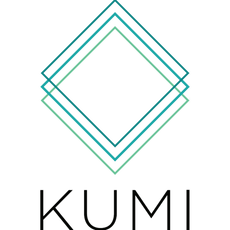The Ultimate Guide To Essential Oils

Explore the world of essential oils in our comprehensive guide. Learn benefits, uses, and more for a holistic lifestyle.
Essential oils are made by distilling or cold-pressing plants to get the natural chemicals and scents. In aromatherapy, skincare, and other natural practices, they are highly valued for their healing and pleasant scents.
As the author, I have a deep passion for holistic well-being and have personally experienced the transformative power of essential oils in my life. My expertise is rooted in years of research, practice, and learning from leading aromatherapists and experts in the field. Additionally, this guide is crafted using information from trusted sources, peer-reviewed studies, and consultations with certified aromatherapists, ensuring you receive the most accurate and reliable information on essential oils. So, let's embark on this aromatic journey together and unlock the potential of essential oils for a healthier and happier you.
What Are Essential Oils?
Essential oils are highly concentrated products of plants that capture their scents and healing properties. These oils contain the essence or "life force" of the plant and are known for their unique scents and potential health benefits.
How Are Essential Oils Extracted?
The extraction of essential oils can vary depending on the plant source. Common methods include steam distillation, cold-press extraction, and solvent extraction. Each method yields oils with distinct properties.
Popular Essential Oils and Their Benefits
Lavender Oil: The Soothing Elixir

Lavender oil is celebrated for its calming and relaxing properties. It is often used to reduce stress and anxiety, promote better sleep, and soothe skin irritations.
Tea Tree Oil: Nature's Antiseptic

Tea tree oil is well known for how well it kills bacteria and fungi. It's a go-to for treating skin issues like acne, athlete's foot, and dandruff.
Peppermint Oil: Invigorating and Refreshing
Peppermint oil is famous for its invigorating scent and potential to alleviate headaches, ease digestive discomfort, and boost energy levels.
Eucalyptus Oil: The Respiratory Reliever
Eucalyptus oil is favored for its ability to clear congested airways, making it a go-to remedy for colds and sinus congestion.
Lemon Oil: Bright and Uplifting
Lemon oil is known for its refreshing citrus aroma and is often used to uplift mood, improve focus, and as a natural disinfectant.
Frankincense Oil: Sacred and Healing
Frankincense oil has a rich history in spiritual and medicinal practices. It's used for promoting emotional balance, reducing inflammation, and supporting overall well-being.
How To Use Essential Oils
Aromatherapy: Inhale the Goodness
Aromatherapy is a way to use the healing properties of essential oils by spreading them into the air. You may use an essential oil diffuser or just smell the scent straight from the bottle.
Topical Application: Dilute and Apply
It's important to mix essential oils with a carrier oil like palm or jojoba oil before putting them on your face. Apply to pulse points, sore muscles, or problem areas for localized relief.
Ingestion: With Caution
Some essential oils can be consumed but should be used sparingly and only under the guidance of a certified aromatherapist or healthcare professional.
Safety Precautions
Essential oils are potent substances and should be used with care. Here are some safety precautions to keep in mind:
- When you use a new essential oil, you should always do a patch test to see if you have any allergies or reactions.
- Keep essential oils away from children as well as animals.
- Essential oils should be kept in a cool, dark place to prevent oxidation.
- If you are pregnant or have other health problems, you should talk to a doctor before using essential oils.
Essential Oil Blending: Creating Unique Aromas
One of the exciting aspects of working with essential oils is the ability to blend them together to create unique and personalized scents. This process, known as blending, allows you to tailor your aromatherapy experience to suit your mood or specific goals.
How To Blend Essential Oils
- Select Your Oils: Choose a combination of essential oils that complement each other in terms of aroma and therapeutic benefits. For example, lavender and chamomile can be mixed together to make a soothing effect.
- Dilution: Use a carrier oil, such as sweet almond or jojoba oil, to dilute the essential oils. This not only makes the blend safe for topical application but also helps distribute the aroma more evenly.
- Experiment: Start with a small batch and experiment with different oil ratios. Keep notes of your blends and their effects to replicate or adjust them in the future.
- Testing: Always perform a patch test to ensure you do not have any adverse reactions to the blend, especially if you intend to use it on your skin.
Popular Essential Oil Blends
- Relaxation Blend: Lavender, Roman chamomile, and cedarwood create a soothing and calming blend, perfect for unwinding after a long day.
- Energizing Blend: Combining peppermint, lemon, and rosemary can help boost focus and energy levels when diffused.
- Stress Relief Blend: Blend lavender, frankincense, and bergamot for a stress-relieving and mood-enhancing aroma.
Essential Oils For Common Ailments
Essential oils can offer relief and support for various common ailments. Here are a few examples:
- Headaches: Peppermint and lavender oil can be applied topically or inhaled to alleviate headache symptoms.
- Insomnia: When diffused or put on pulse points, a mixture of lavender, chamomile, and cedarwood can help you relax and sleep better.
- Muscle Pain: Eucalyptus and peppermint oils, when diluted in a carrier oil, make an effective massage blend for sore muscles.
- Congestion: Inhaling steam infused with eucalyptus oil can help clear nasal congestion during a cold.
Essential Oils in Daily Life
Using essential oils in your daily life can be a fun and useful thing to do. Here are some practical ways to make essential oils a part of your everyday life:
1. Morning Aromatherapy
Start your day on a positive note by diffusing invigorating oils like citrus or peppermint in your bedroom or bathroom. Inhale deeply to awaken your senses and boost your energy levels.
2. Natural Cleaning
Create your all-natural cleaning solutions by adding essential oils like tea tree, lemon, or eucalyptus to vinegar or water. These oils not only provide a pleasant scent but also have antibacterial properties.
3. Personal Care
Enhance your skincare routine by adding lavender or frankincense oil to your moisturizer. These oils can promote healthy skin and reduce the appearance of blemishes.
4. Stress Reduction
Keep a small bottle of lavender or a calming blend in your purse or pocket. Inhale the aroma when you're feeling stressed or anxious to promote relaxation.
5. Aromatic Baths
You can make your bath more relaxing and pleasant by adding a few drops of your preferred essential oil. Epsom salts can enhance the experience and provide muscle relaxation.
6. Home Fragrance
Instead of synthetic air fresheners, use essential oil diffusers to scent your home naturally. Experiment with different blends to create a welcoming atmosphere.
7. Yoga and Meditation
Incorporate essential oils into your mindfulness practices. Diffuse grounding oils like cedarwood or sandalwood during yoga or meditation sessions to enhance focus and relaxation.
Essential Oils and Holistic Health
The use of essential oils goes beyond mere aroma; it's a holistic approach to health and well-being that encompasses the mind, body, and spirit. By integrating essential oils into your daily life, you can promote balance, reduce stress, and nurture your overall health.
The Future of Essential Oils
As the number of people who use essential oils grows, more studies and new ideas are likely to come out. Scientists are delving into the therapeutic potential of these oils, uncovering new applications and benefits.
In the coming years, we can anticipate:
- Expanded Knowledge: A deeper understanding of how essential oils affect physical and emotional health.
- New Blends and Applications: Innovative blends target specific health concerns and enhance well-being.
- Sustainable Sourcing: A focus on sustainable and ethical sourcing to protect the environment and support local communities.
Final Thoughts
Essential oils are a natural gift from the plant kingdom, offering a myriad of benefits for your health and lifestyle. Whether you're seeking relaxation, relief from ailments, or a more aromatic environment, essential oils can enrich your life in numerous ways.
Remember, as you embark on your journey with essential oils, always prioritize safety, research, and self-discovery. By doing so, you'll be able to harness the incredible power and potential of these aromatic wonders to lead a healthier and more balanced life.





